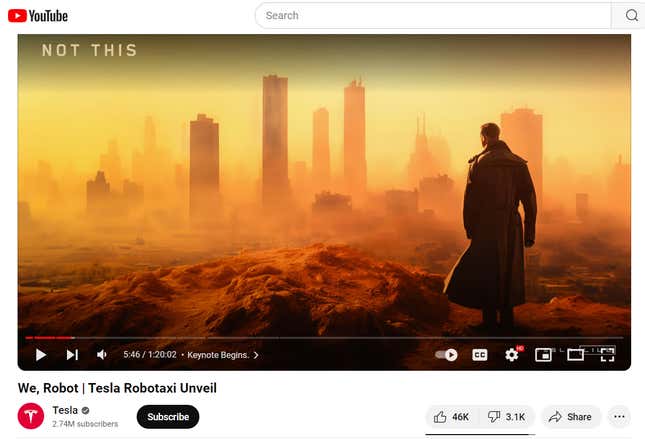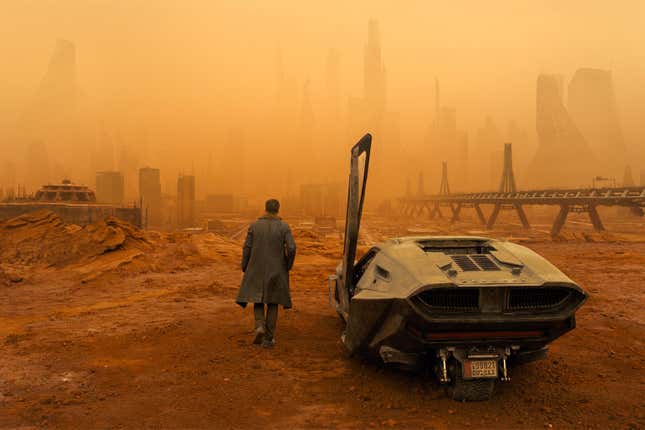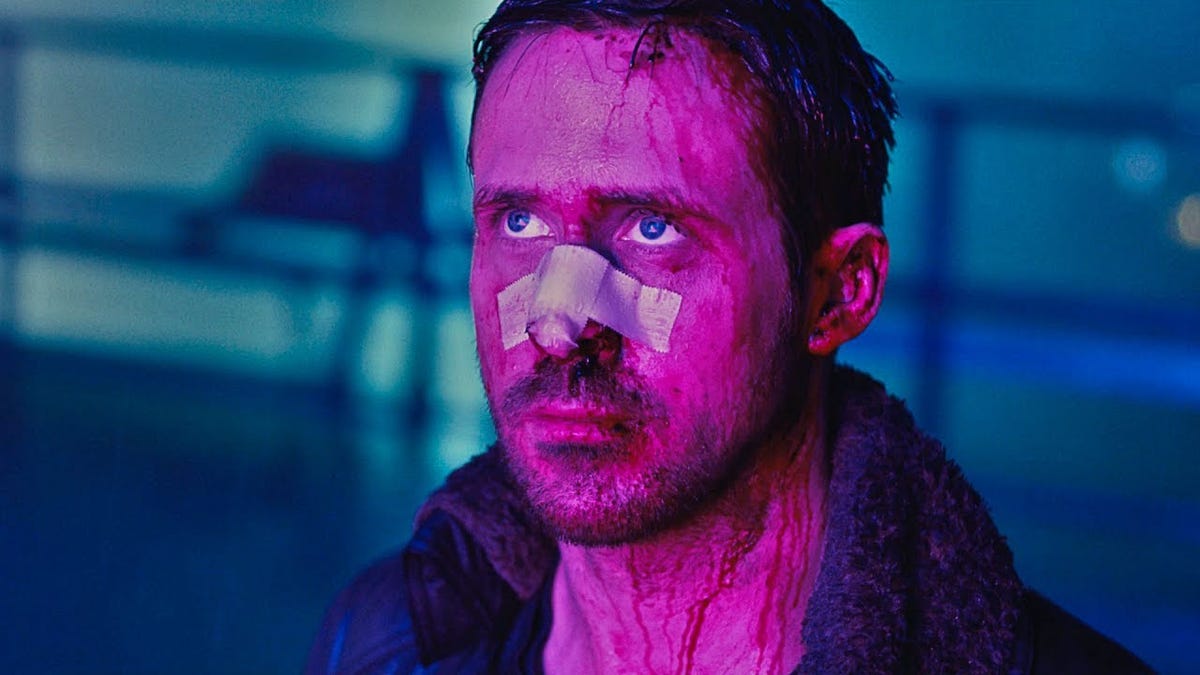Last week, Elon Musk revealed his Robotaxis at a Tesla Cybercab event on a Hollywood movie lot filled with theatrical flourishes aimed at evoking a neon-fueled sci-fi future. A new lawsuit filed on Monday now accuses the tech billionaire of using AI to generate Blade Runner 2049-style imagery after one of the companies behind the film had already turned down Musk’s request to officially license it.
The lawsuit was filed in U.S. District Court in Los Angeles on behalf of Alcon Entertainment, which helped finance Blade Runner 2049, The New York Times reports. It targets both Tesla and Warner Bros. as defendants and claims the former used AI-generated imagery based on Blade Runner 2049 to infringe on Alcon Entertainment’s copyright. It essentially argues that Musk tried to “misappropriate the Blade Runner 2049 brand to help sell Teslas.”
The Denis Villeneuve-directed sequel to the Harrison Ford original starred Ryan Gosling and used bold colors and panoramic futuristic views to depict a grim cyberpunk dystopia in which both humanity and machines are suffering from corporate exploitation and spiritual malaise. But Gosling, and the movie, tapped into a cool mystique alongside the technological angst.
Musk’s allegedly infringing images were part of the “We, Robot” Tesla Cybercab event on October 10, held on the Warner lot, where the company revealed new autonomous cars that it claims could be ferrying passengers around Los Angeles by the end of the decade. The company also touted its Optimus robots at the event, which it claims will be able to carry out various household tasks for $20,000-$30,000 each once they are manufactured.


Early in the event, Musk used the image of a man in a trench coat looking out at a hazy, yellow-orange, desolate, urban city skyline with the words “not this” in the corner to illustrate a future dystopia his products are meant to avoid. “I love Blade Runner, but I don’t know if we want that future,” the Tesla CEO said during the event, directly referencing the franchise. “I believe we want that duster he’s wearing, but not the, uh, not the bleak apocalypse.”
In its lawsuit, Alcon claims that the still image was clearly interpreted as a reference to the 2017 sequel and, in addition to infringing on its copyright, also affiliates the two brands in a way that the Hollywood company intentionally wanted to avoid. Alcon said it wanted to avoid any association with Musk’s “massively amplified, highly politicized, capricious and arbitrary behavior, which sometimes veers into hate speech,” and also to not jeopardize potential brand deals with other car companies ahead of the launch of an upcoming Blade Runner 2099 TV show on Amazon Prime. Despite denying Musk’s request to use Blade Runner 2049 in his presentation, the lawsuit states, “He did it anyway.”
While Musk was once known primarily for his electric cars, he’s made news much more often in recent years for incendiary comments on X, formerly known as Twitter, which he purchased in 2022. When he’s not touting successful rocket retrievals by SpaceX or playing Diablo IV, he’s out campaigning for Donald Trump in the 2024 presidential election. Over the weekend, Musk claimed he would give any registered voter in Pennsylvania $100 to sign a petition as part of a marketing blitz for the recently convicted Republican candidate.
Update 10/23/2024 4:41 p.m. ET: Musk has weighed in on the lawsuit this week, though not its merits. “That movie sucked,” he tweeted in response to a post about the Blade Runner 2049 accusations.

